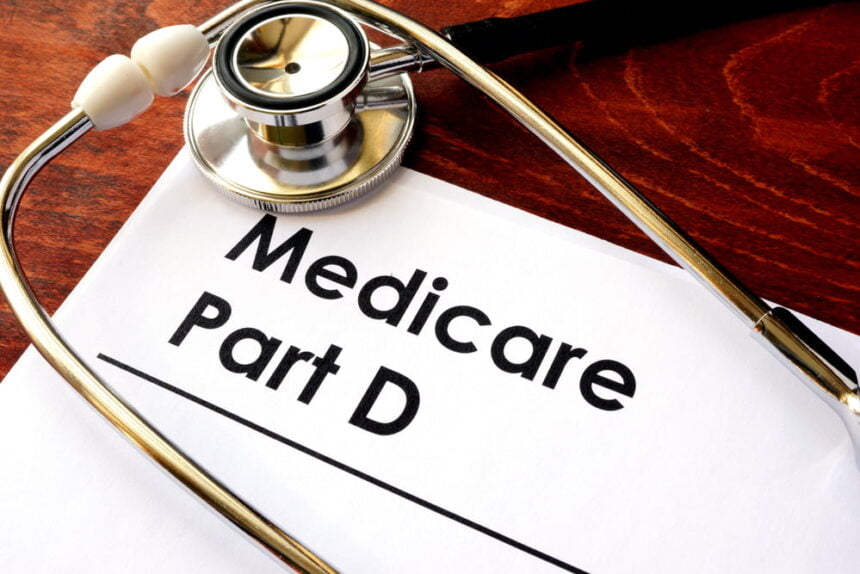Medicare Part D is an outpatient drug prescription program for Medicare beneficiaries achieved through Federally approved private plans. The program is voluntary, and the recipients may register for an independent Prescription Drug Plan or a Medicare Advantage Prescription Drug Plan.
The Medicare Advantage Prescription Drug Plan consists of HMOs and PPOs, including all Medicare advantages, including drugs. Part D is a crucial aspect of the Medicare program, which has seen tremendous growth over the years, with about 77.5% of all Medicare beneficiaries enrolled in the scheme as of 2021.
How does Medicare work?
Private companies are contracted by Medicare and allowed to sell Part D coverage to various individuals. Medicare monitors and partially funds the firms on renewable one-year contracts. Therefore, interested people must purchase policies from licensed companies to enjoy Part D coverage.
Monthly premiums and annual deductibles are fundamental necessities for one to enjoy the full benefits of the scheme; however, sometimes, the firms may opt to waive the deductibles. Co-payments and co-insurance create a unique phenomenon called the Donut Hole that enables one to enjoy catastrophic coverage provided they meet the threshold contributions.
Medicare Part D came into effect in early 2006 by an act of Congress that sought to provide prescription drug benefits to its clients. Initially, Medicare paid for drugs given to patients when admitted and didn’t cater to outpatient prescriptions. Part D brought about the ability for patients to access prescription drugs whether they purchase them through home infusion, mail order, retail, or long-term care pharmacies.
Alternatives for Plan B funding
Poor people below the Federal poverty level may acquire assistance in paying for their Part D deductibles, premiums, and co-pays. The Social Security Administration facilitates this program through the Part D Low Income Subsidy.
Plans can reconstitute their drug catalogs by adding new medicines, removing old drugs, and increasing their co-pay and co-insurance payments. Therefore, Plan D holders are advised to review their plans on an annual basis to ensure the ones they pick can fulfill their medical and financial requirements.
Many companies offer redundant prescription drug packages in their Medicare catalog at increased prices which doesn’t necessarily translate to improved output for the patient. To mitigate this, enforceable regulations have been developed that necessitate plans to eradicate low enrollment plans and harmonize their identical procedures.
Sources of Plan D coverage
The private Fee for Service Plan is a scheme built on a network of licensed drug prescription providers across America. The pharmacies are registered under Medicare Part A and B, which obligates them to accept the plan and payment mode of a patient seeking to purchase prescription medicine. Members often pay less when they encounter a store part of their plan network.
Preferred Provider Organizations provide patients with specialized care after choosing a primary caregiver; the patient may engage with any specialist within their plan’s network without a referral. Consulting specialists not part of a patient’s plan network often increases payments.
The Special Needs Plan caters to patients eligible for Medicare and Medicaid and has chronic illnesses who are required to take prescription drugs from their plan providers only. The plan providers must provide case management services to their client’s distinct needs.
Health Maintenance Organization is a platform where beneficiaries pick a primary care physician from a pool provided by their plan providers. The plan does not cover medical expenses for patients who visit specialists other than their primary care physician without a referral. Patients are not allowed to move with their initial physicians should they decide to leave the plan’s network of specialists.
Employers or Union Sponsored Part D Retiree Plans are medical coverage arrangements that acter for eligible employees of an institution through their MA-PD plans. Employer-sponsored plans must adhere to the same regulations as their commercial plan counterparts. Members of union plans have similar rights to those enjoying commercial plan coverage.
The Retiree Drug Subsidy is a program established so that unions and employers, who offer their retirees prescription medicine coverage, can secure Federal Retiree Drug Subsidy for their workers. The subsidy program significantly reduces the amount spent by employers in terms of drug procurement; however, those enrolled in the subsidy initiative cannot apply for Part B.
Eligibility for Plan D
All persons who enjoy the benefits of Medicare can apply for Part D. Moreover, for one to enroll for a PDP, they may either have Part A or Part B. In contrast, for one to use MA-PD, they must have Part A and Part B. Applicants must be permanent residents in the states where their plan’s coverage is accessible. However, several techniques have been developed to cater to those who frequently travel for work or other activities.
People living outside the United States may not apply for Part D coverage but may use it when they return to America. While serving their sentences, prisoners cannot apply for Part D, but once they have been released, they may enroll.
Before 2021 people with End Stage Renal Disease could not apply for Part D coverage, or they would be disenrolled if they developed ESRD while benefiting from their plan. Fortunately, ESRD patients may use Part D during the yearly Open Enrollment Period.
Conclusion
Medicare Part D is an ingenious way for the Federal government to supply the population with the necessary prescription drugs without necessarily having them in inventory. Patients can get medicines across the country because licensed companies are everywhere. However, better management and oversight must ensue between Medicare and the private contractors for better output.









